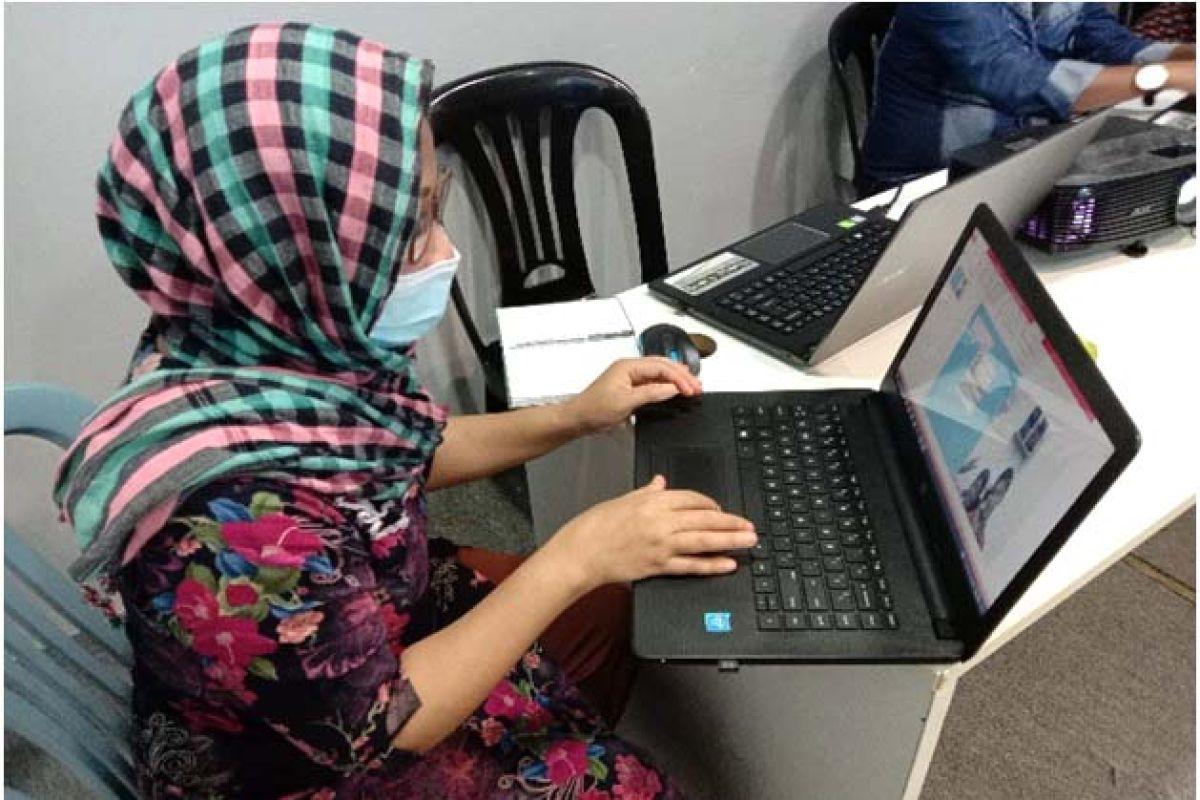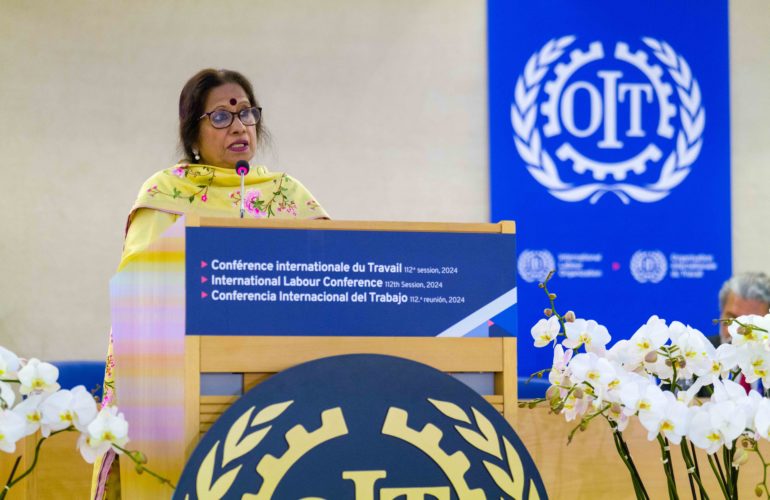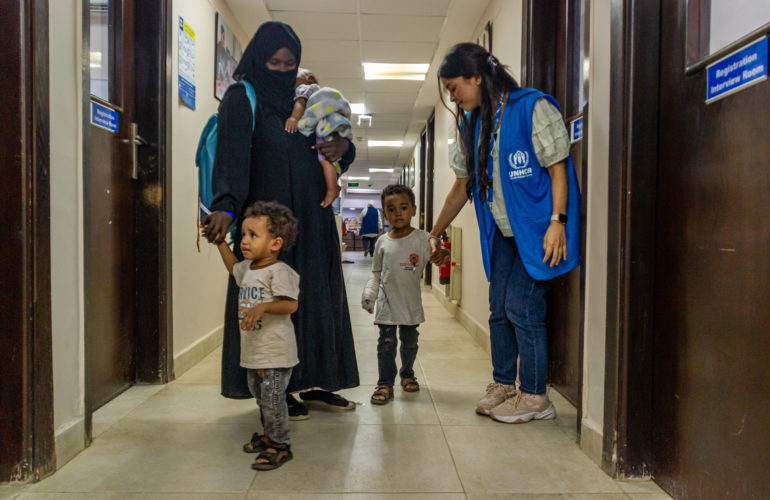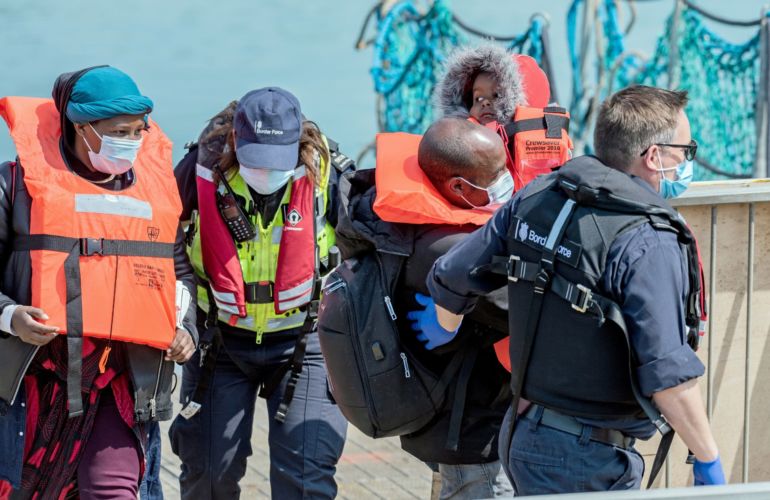Meet Rahima, one of 13,000+ #refugees who benefited from ICMC's education and digital literacy programs in #Malaysia. Education, livelihoods & vocational training allow people seeking shelter and protection to become self-sufficient and integrate with host communities. #WRD2022 pic.twitter.com/jxo6qnAFmm
— ICMC (@ICMC_news) June 20, 2022
Ensuring the Right to Education on World Refugee Day
20 June is World Refugee Day, which this year focuses on the right to seek protection. The International Catholic Migration Commission (ICMC) gives priority to upholding the right to education so that children can secure their futures even while living uprooted from their countries or regions of origin.

Since the beginning of the global COVID-19 pandemic, digital literacy to bridge what is becoming a growing digital divide is imperative for people of all ages. With such literacy, displaced people, who are among the most vulnerable, can continue to access education opportunities and generate incomes for themselves and their families, even if future lockdowns and movement restrictions are put in place to safeguard public health.
One of the locations where ICMC supports educational programs is in Kuala Lumpur, neighboring Klang Valley and Penang, in Malaysia’s northwest. Malaysia currently hosts more than 180,000 asylum seekers, according to the UN Refugee Agency (UNHCR). Upwards of 85% of those asylum seekers are from Myanmar, and the vast majority of the people arriving to escape the conflict in Myanmar are from the Rohingya ethnic minority. In 2017, the Myanmar military unleashed a brutal crackdown on Rohingya in Rakhine State, pushing more than 700,000 Rohingya into Bangladesh, where they’ve largely remained for their safety and survival.
Many Rohingya also are forced to risk their lives to make a dangerous sea voyage, trusting human smugglers to help them reach Malaysia, sometimes after several months of drifting at sea. Needless to say, many never make it, with shipwrecks along the coasts of Myanmar happening frequently.
The late Mr. Kyaw Hla Aung shared with ICMC a gift of the Aurora Prize awarded to him in 2018 for his human rights and awareness-raising about his own Rohingya people. Largely through this generous gift, ICMC was able to organize classes for Rohingya refugees in Malay and English languages, sewing classes, cooking classes, and courses on other income-generating activities. The programs also promoted education as key to securing a better future for the Rohingya, refresher courses on childcare, and improving communication in marriages as one part of diminishing gender-based violence. Courses were organized that also specifically addressed gender-based violence, improving the status of women and women’s rights, to reduce violence against women and girls.
“In Rakhine State, the paradox is that many of the Rohingya who were over-subscribing for our courses in Malaysia would not have had access to education programs at all in their home country of Myanmar. There, Rohingya are largely barred from attending secondary and university-level educations. Moreover, many cannot reach a high school due to movement restrictions,” said Msgr. Robert J. Vitillo, Secretary General of ICMC.
With the courses facilitated in Malaysia, classes in Malay language helped women to integrate better into the Malaysian culture and to be better equipped to navigate buying produce at the market or simply improving their employment prospects.
More than 13,000 men, women, boys, and girls directly benefited from the education and digital literacy programs. Children learned standard software programs needed in the digital workforce, such as Word, Powerpoint, Excel, and the design software Canva. Resume writing was also a focus, especially for youth.
Due to the pandemic, classes moved fully online and the Aurora funding made it possible to buy tablets so students could move to remote learning. One unexpected benefit of the online format was that the courses could be made available to more students than planned.
On the other hand, some income-generating activities, such as the sewing classes, however, had to be canceled.
Direct cash transfers to the most vulnerable Rohingya also helped them pay for rent, school supplies, and food at a time when many were losing jobs during the pandemic and unemployment soared among the asylum seekers and refugees.
On these initiatives, ICMC partnered with:
- Rohingya Society Malaysia (RSM)
- Rohingya Women Development Network (RWDN)
- City Discipleship Presbyterian Church (CDPC)/Rohingya Kasih Centre (RKC)
- Persatuan Jaringan Islam Global Masa Depan (JREC)
- Elom Initiatives Office (ELOM), and
- Rohingya Community at Flat Wisma Telaga Air



